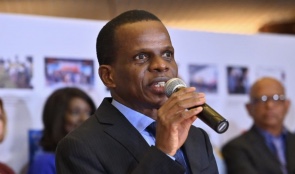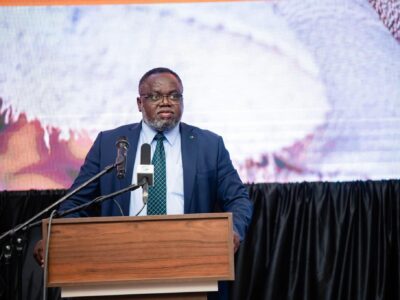African countries are at the verge of missing the targets set out in the 2030 Sustainable Development Goals (SDGs) and 2063 agenda if action is not taken to address poverty and inequality levels on the continent.
The United Nations Economic Commission for Africa (UNECA) Acting Executive Secretary Antonio Pedro said the risks of missing poverty and inequality targets set out in the 2030 agenda for SDGs and agenda 2063 “The Africa we Want” was higher than it had never been before.
He cited the impact of the shocks caused by the Covid-19 pandemic, war in Ukraine and climate change have pushed more people into extreme poverty and increased inequality.
Pedro said this when he addressed journalists across UNECA member states virtually on Monday.
He pointed out that Africa was falling even further behind, stating that Covid-19 pandemic for example had pushed an additional 55 million people into the poverty line.
Pedro who is also representative of Conference of Ministers (CoM) said the emergence of a large number of newly poor and vulnerable people makes it harder to close the gap between the rich and poor hence the focus on equalities.
He said the fourth coming conference of African Ministers of Finance, Planning and Economic Development of Economic Commission for Africa (ECA) to be held in Ethiopia offered an opportunity to find solutions to these problems.
Pedro said the fifty-fifth session of the Conference of African Ministers of Finance, Planning and Economic Development of the ECA would be held under the theme ‘Fostering recovery and transformation in Africa to reduce inequalities and vulnerabilities.’
He said the ability for African countries to effectively fight poverty and inequalities was also a major constraint given the declining economic growth, narrow fiscal space, rising debt, commodity shocks and tighten global financial conditions.
With this, Pedro said the risk of missing the poverty and inequality targets was higher than it had never been before.
“Poverty and inequality in Africa cause high risks to prosperity, peace and security and social contract more broadly.
“The Conference therefore aims to renew focus and action in reducing poverty, inequality and other factors that left the African population continuously vulnerable to these siege,” he said.
Pedro indicated that recovery efforts must be propoor and inclusive in a view of fostering a new social contract that offers equal opportunities for all.
“Considerable opportunities to which these goals exist on the continent and beyond including some of the activities carried out under the African Continental Free Trade Area, green investment, digital transformation and reforms to the global architecture,” he said.
Despite high growth rates in the past two decades, which have reduced poverty levels in Africa with the share of the population living in extreme poverty decreasing from 55 to 35 percent between 2000 and 2019, 667 million people still live in extreme poverty in 2022.
Pedro said global shocks are turning millions of vulnerable people into the continent’s new poor, reversing decades of progress, citing that the Covid-19 pandemic has pushed an additional 55 million Africans below the poverty line.
COM 2023 will be attended by African ministers of Finance, Planning and Economic Development, representatives of member States, entities of the United Nations system, pan-African financial institutions, African academic and research institutions, development partners, and intergovernmental organizations.
CoM 2023 will be convened under the theme, ‘Fostering recovery and transformation in Africa to reduce inequalities and vulnerabilities’ from March 15-21, 2023, in Addis Ababa, Ethiopia.
WARNING! All rights reserved. This material, and other digital content on this website, may not be reproduced, published, broadcast, rewritten or redistributed in whole or in part without prior express permission from ZAMBIA MONITOR.












Comments